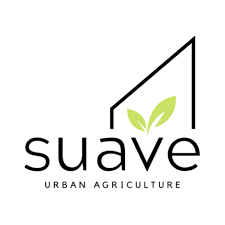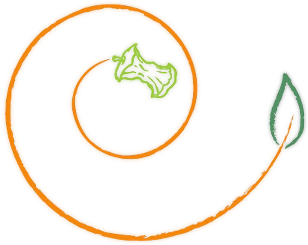Financé par le programme des EuroClusters depuis 2022, SUAVE est un projet européen pionnier visant à stimuler les systèmes alimentaires urbains résilients.
Animé par un pool de clusters agro-alimentaires et digitaux en France, Espagne, Hongrie, Pologne et Lithuanie, le projet soutient des entreprises et clusters européens dans une approche holistique de l'agriculture urbaine.
Vert d'Iris a soumis deux propositions au premier appel à projets européen de Suave au printemps 2023 (voir résumés ci-dessous).
Sa proposition pour le Prix de l'Innovation ("Greening Brussels with black gold", voir résumé ci-dessous) a reçu 30/30 (1ère place parmi 33 candidats éligibles). Elle repose sur le travail réalisé dans le cadre du projet Humus Pro, projet initialement soutenu par le programme Bruxellois Be Circular 2018.
Ce prix (20.000 euros) va aider à boucler le financement du projet qui a duré plus longtemps que prévu et qui a dépassé le budget accordé par le programme Be Circular.
La 2ème proposition ("Bringing your carbon back", voir résumé ci-dessous), soumise pour le Forfait Innovation, a reçu la note de 27/30 (11ème place parmi 90 candidats éligibles). Cet autre budget de 20.000 euros va aider Vert d'Iris à améliorer sa collecte de sous-produits végétaux auprès de nos fournisseurs tels que les magasins The Barn et ECLO, et à fermer la boucle en proposant le compost issu aux utilisateurs locaux (ce qui n'est pas le cas aujourd'hui, en dépit d'une demande grandissante).
En savoir plus sur l'"or noir" : https://www.vertdiris.net/post/or-noir
Merci au projet SUAVE pour cette double distinction et à Aude et toute l'équipe de Vert d'Iris pour avoir rendu ce résultat possible, dans la suite du projet Humus Pro !
Humus Pro: Greening Brussels with black gold

Summary of the project
Presentation: Humus pro aims to produce black gold for any gardeners or farmers, which is the creation of humus for the health of the soils through composting. We wrote a blog regarding this project : https://www.vertdiris.net/post/or-noir .
The project relies in the management of organic waste in the Brussels-region. It is an existing solution to address the demand by professionals for more circularity regarding this "waste". Vert d'Iris collects and transforms this products into humus, a rich fertilizer for soil regeneration.
The Humus Pro project tested a method of recycling urban waste through composting and agricultural reclamation of the composts generated. Soil analyses show that our soil quality has changed dramatically in just a few years, particularly in terms of total nitrogen content (soluble mineral fraction and insoluble organic fraction) and humus content.
Results: Every year, Vert d'Iris collects 150 tonnes of organic vegetable waste from professional organic producers and distributors in Brussels. Composting this material and applying it on the agroforestry crops has resulted in a net gain of almost 300 tonnes of humus in the cooperative's vegetable gardens (1.5 ha). E.g, in the larger site, humus levels rose from
1% to 12% between 2015 and 2022. The soil is now more fertile: structured, lumpy and
humus-rich, no longer flooded.
Bringing your Carbon Back

Summary of the project
“Bringing your Carbon Back” (BCB) aims to develop the downstream phase of a project
initiated by Vert d’Iris in 2018: Humus Pro. It has tested and demonstrated the commercial collection and composting of professional plant biowaste in Brussels. Over the last 5 years, it has generated almost over 270 tons of humus, out of 800 tons of local waste.
BCB will bring this fertility back to the local market through the commercialization of locally sourced compost to urban farmers in the Region of Brussels. Creating this commercial downstream supply-chain requires scaling up the production and completing the production cycle, through light mechanisation and adequate conditioning.
The upstream elements of the project are already settled: Vert d’Iris collects about 150 tons of vegetal waste per year at the premises of local organic food businesses. We compost the waste and have used all the compost to improve the soils.
At the same time, Brussels urban farmers are using quantities of compost and potting soil for their professional or self-consumption crops, and they don’t find many locally-sourced providers.
The BCB project aims to fill this expanding niche, and to bring the carbon back to the local market of urban agriculture. Improving operational efficiency in waste management is a priority. BCB will improve composting logistics with a focus on operational efficiency and scaling up.
























